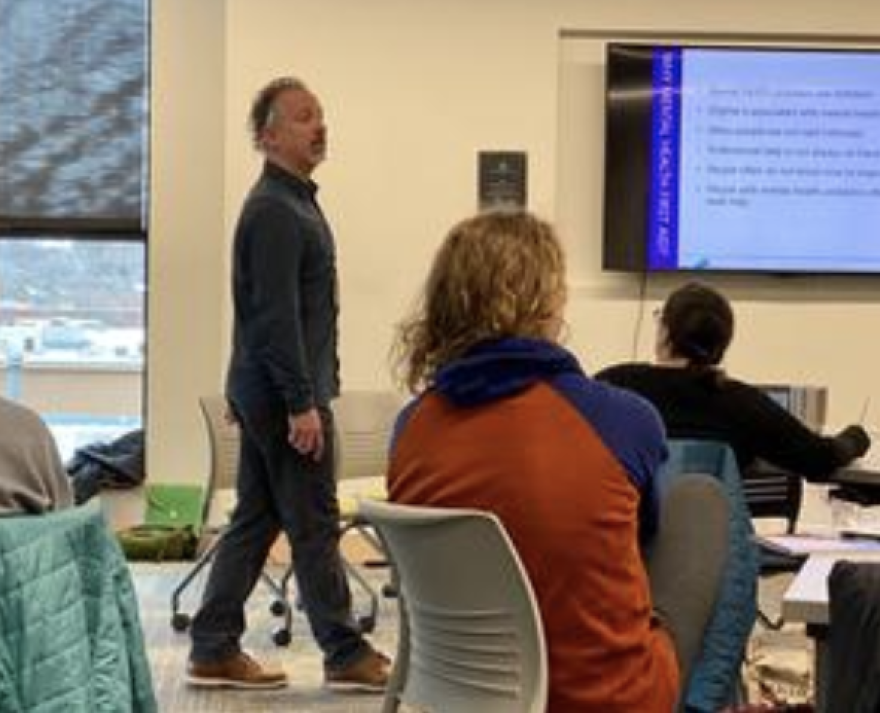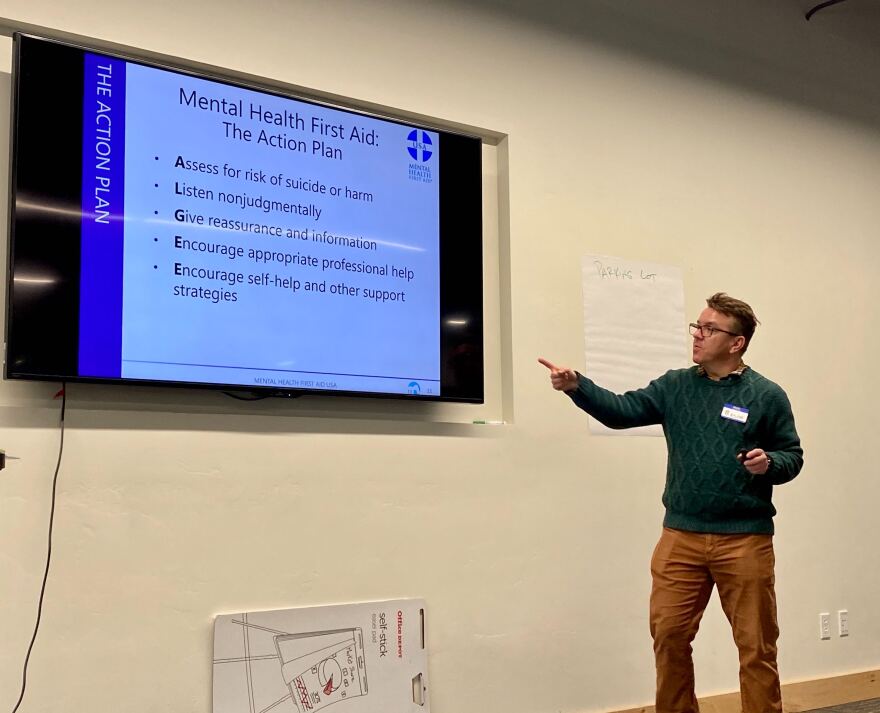Colorado consistently ranks in the top 10 states with the highest suicide rates, according to the Centers for Disease Control and Prevention. And the problem is particularly bad in the Roaring Fork Valley, say mental health providers.
That’s why about 20 people gathered at the Glenwood Springs Library in January to learn how to help others who might be dealing with a panic attack or considering suicide.
The course is called Mental Health First Aid, and the goal of this skills-based training course - much like a CPR class - is to help participants understand mental illness, learn when to intervene and ultimately save lives.
Hans Lutgring, the Glenwood Springs outpatient program director with Mind Springs Health, which provides mental health and addiction recovery support on the Western Slope, is working to bring these trainings to the Roaring Fork Valley. Mason Hohstadt, who chairs the Suicide Prevention Coalition of Garfield County and works for Garfield County Public Health, also joined Lutgring to teach the all-day class.

An acronym is at the core of the training: ALGEE.
“‘A’ is always going to be ‘assess for risk of suicide or harm,’” Hohstadt explained to the group. “We're going to ‘listen’ non-judgmentally. We'll ‘give’ reassurance and information. We're going to ‘encourage appropriate professional help’ and ‘encourage self-help and other support strategies.’”
Lutgring explained this course, which includes role-playing different mental health scenarios, is about giving people the confidence to be the first to offer help to someone in crisis, whether that’s a panic attack, suicidal feelings or even psychosis.
“This is not us training junior varsity mental health professionals,” he said. “This is really increasing the competency of our community to be able to respond to people that are experiencing mental health issues or substance use issues.”
The National Council for Behavioral Health runs Mental Health First Aid, and reports that over 2 million people in the U.S. have been trained so far. The idea is for this course to become as common as CPR and First Aid training.

Nurses, librarians and nonprofit leaders attended the training session, as well as people who want to know how to help friends and relatives who are depressed or dealing with an addiction.
Jenny Hernandez works at the Glenwood Springs Library. She said the library sees patrons struggling with addiction or mental health, and this course is teaching her the power of just listening.
“I think just like not being afraid to talk to them, because sometimes I'm like, ‘Oh, I don't know what to say. I shouldn't get involved at all,’” she said. “It's okay to just listen and talk to them and feel connected to them.”

John Cleveland, a fisheries technician for Colorado Parks and Wildlife, said Mental Health First Aid helped him see how many people are struggling.
“You never know who you're going to be talking to that might need help or might be trying to reach out a little bit or might need you to lean in a little bit,” he said.
That’s one of the reasons instructors Hohstadt and Lutgring say this training is so important. Hohstadt said trainings help spark conversations throughout the community.
“Think about the fact that 30 years ago we didn't talk about cancer, and now you can't go a month without it being some kind of cancer month,” Hohstadt said. ”I think that we’re in that stage right now with mental health.”
Cleveland, Hernandez and everyone who went through the training received a certificate stating they are official mental health first-aiders. But Lutgring and Hohstadt say that, more importantly, they’re now equipped to raise awareness about mental health in a community that needs it.





